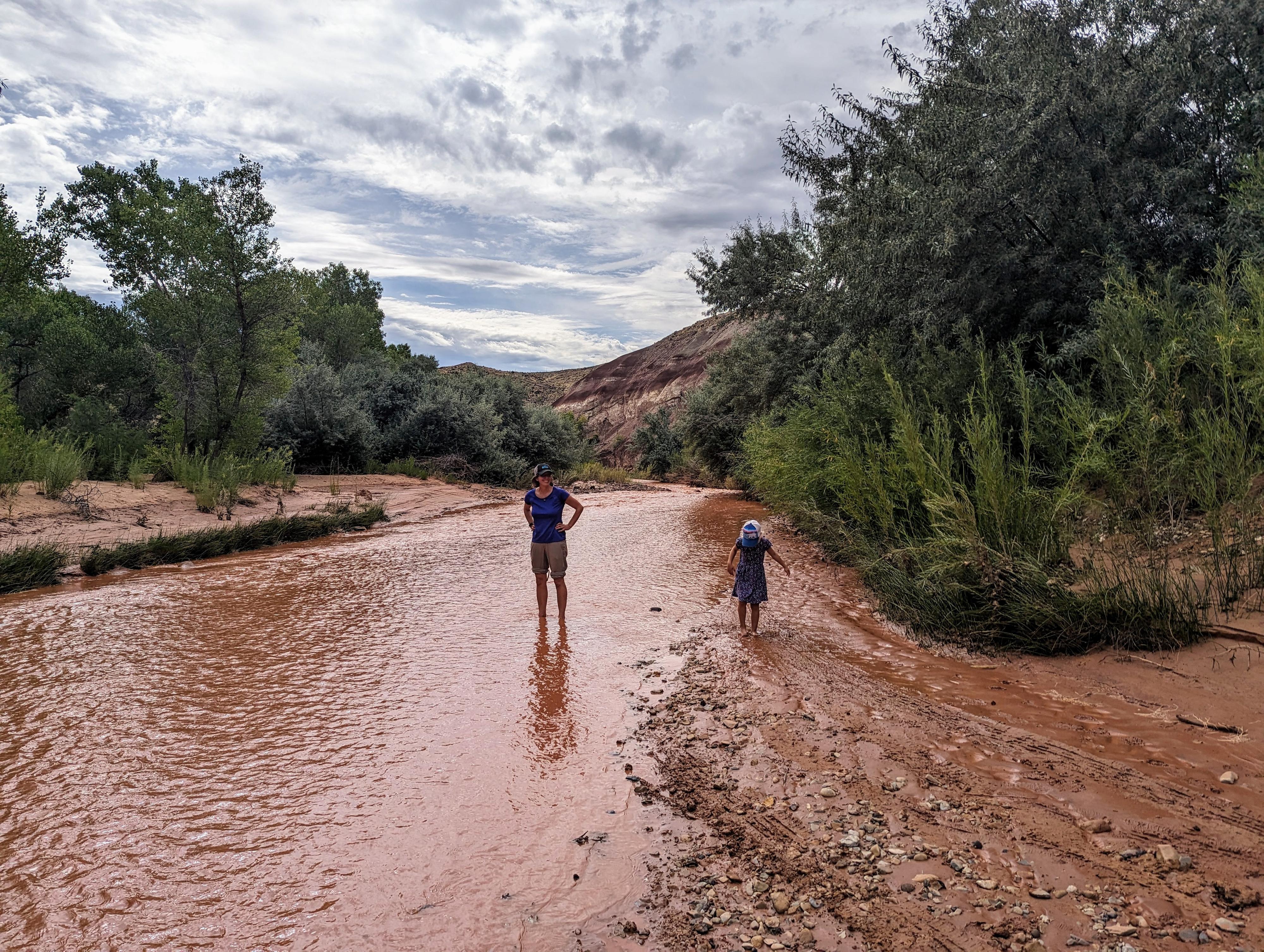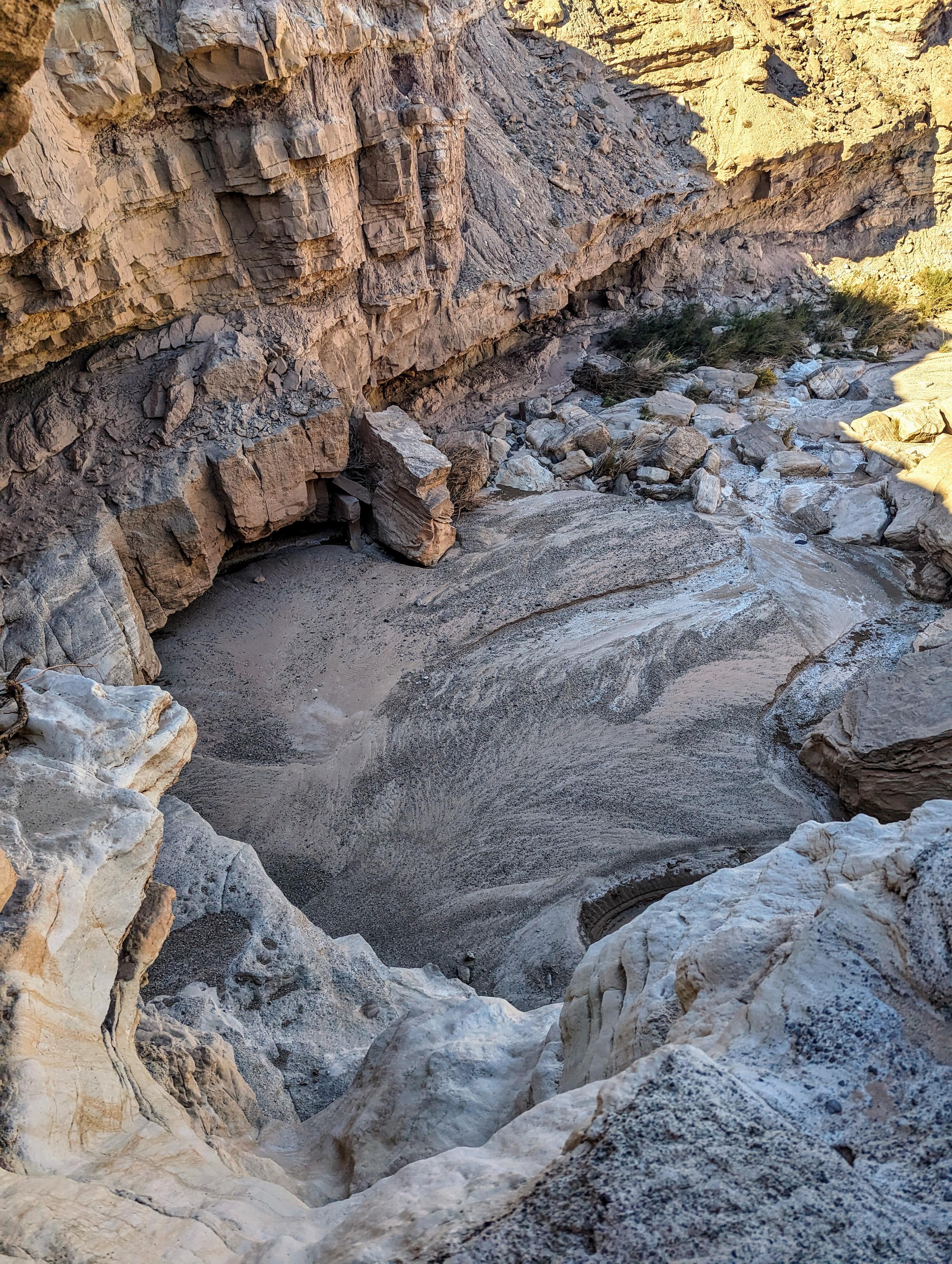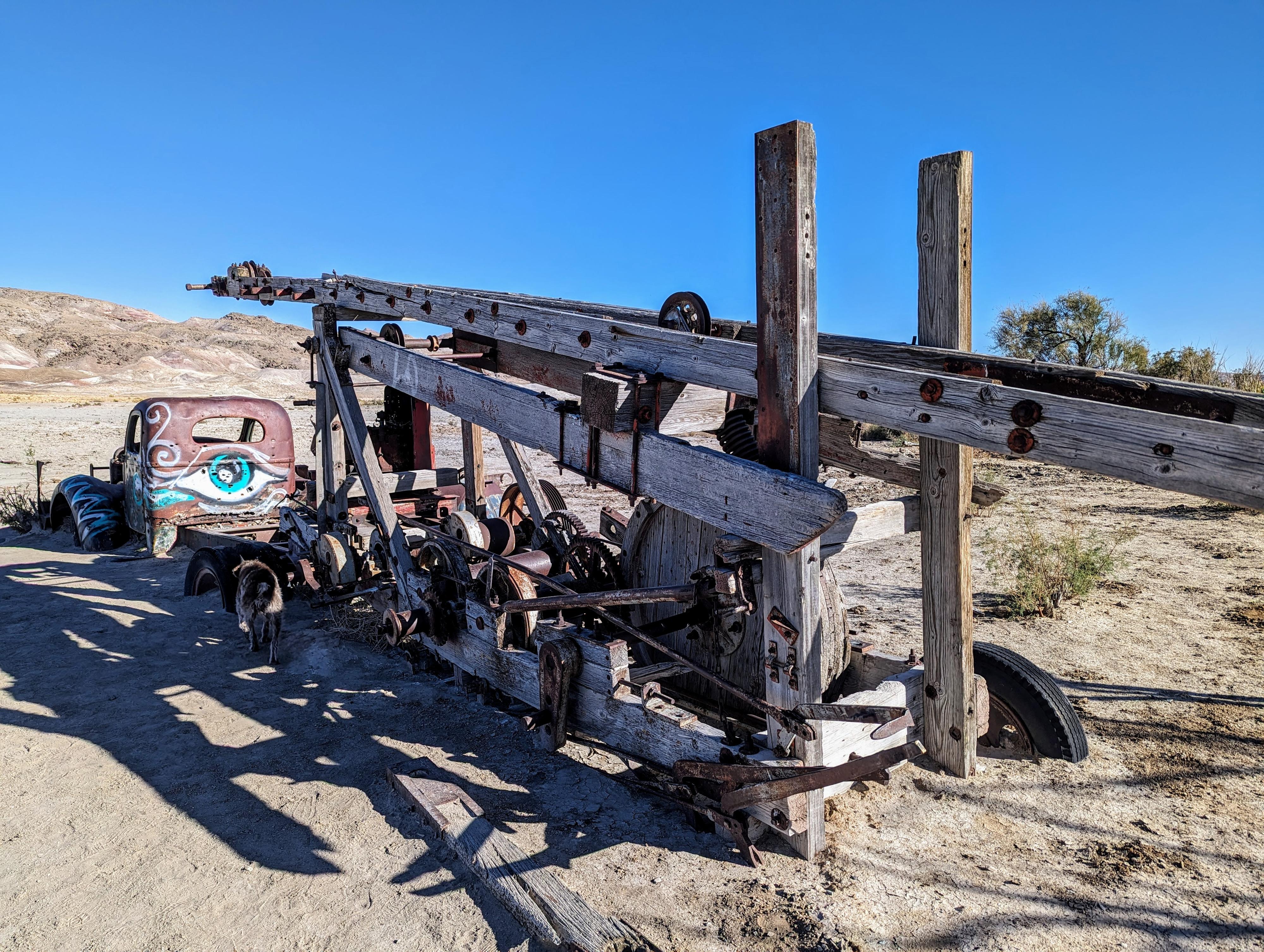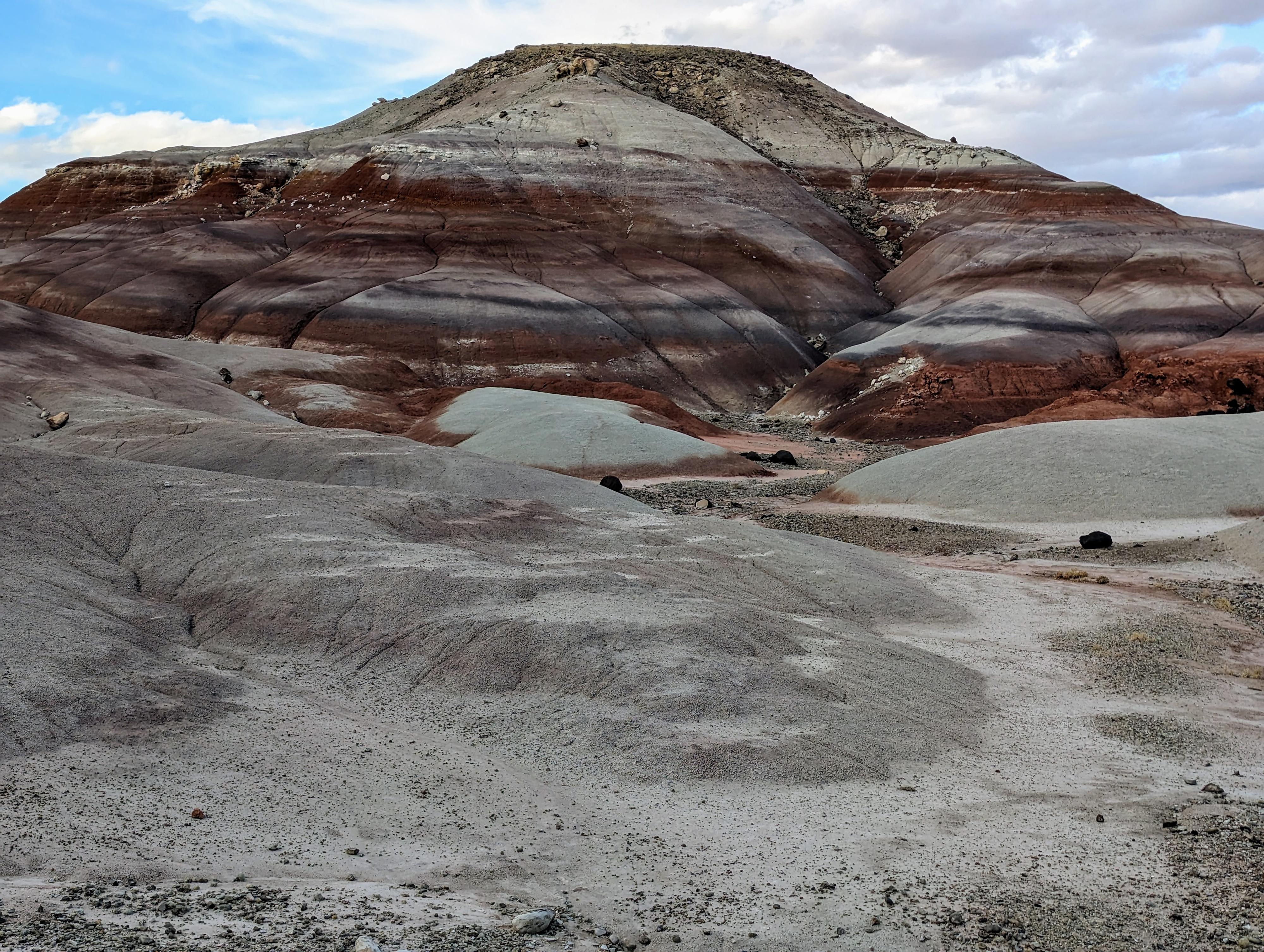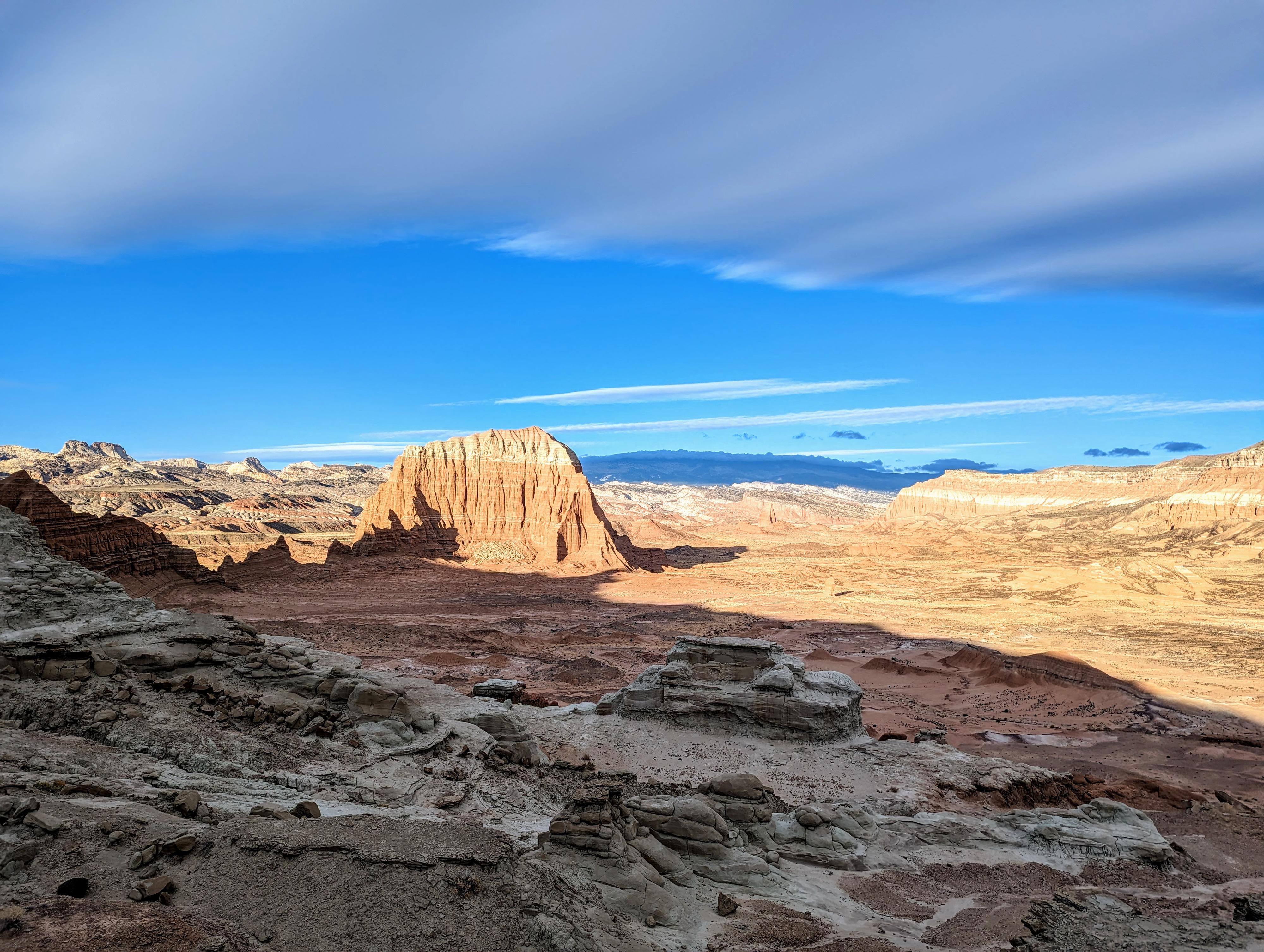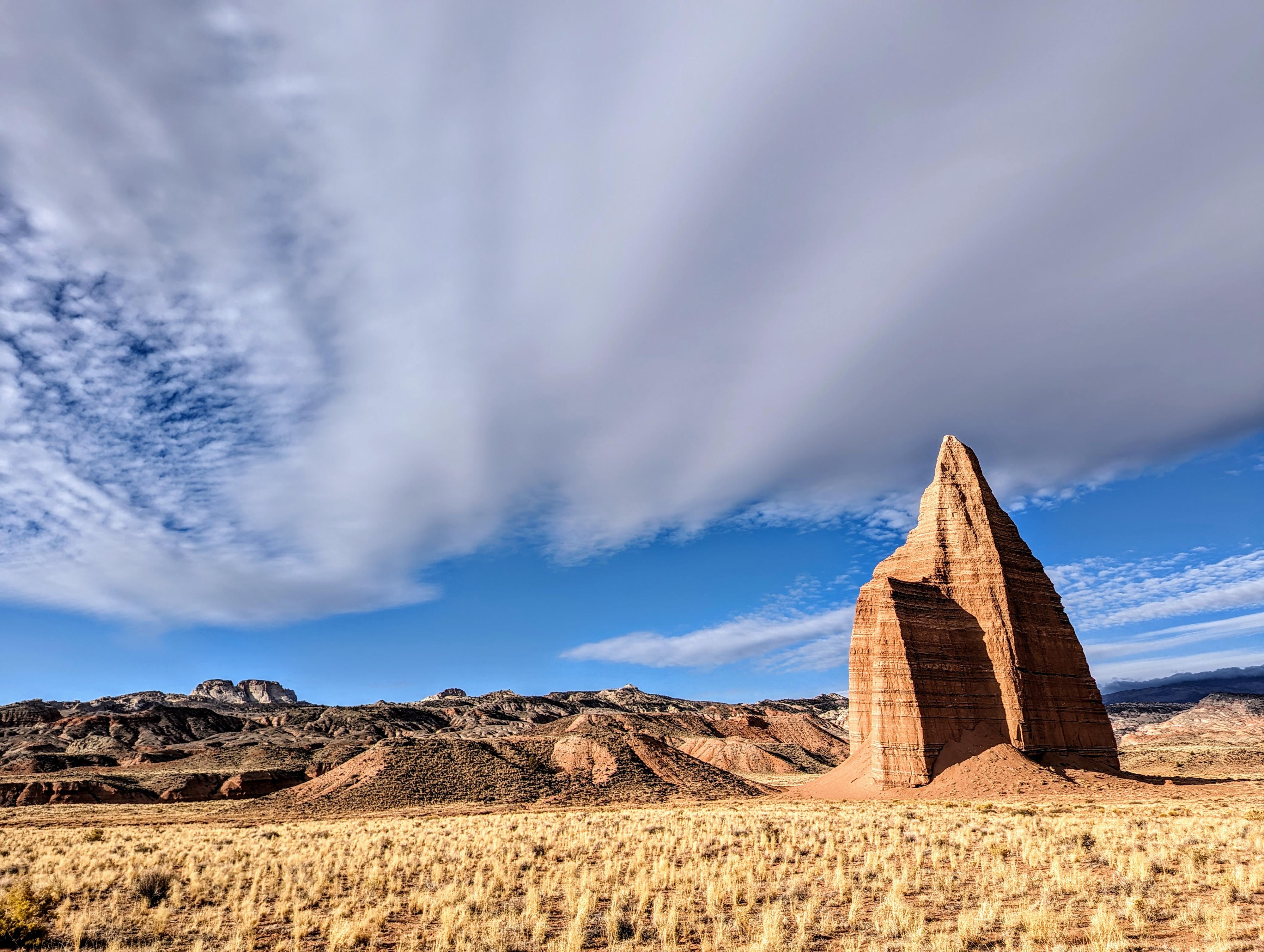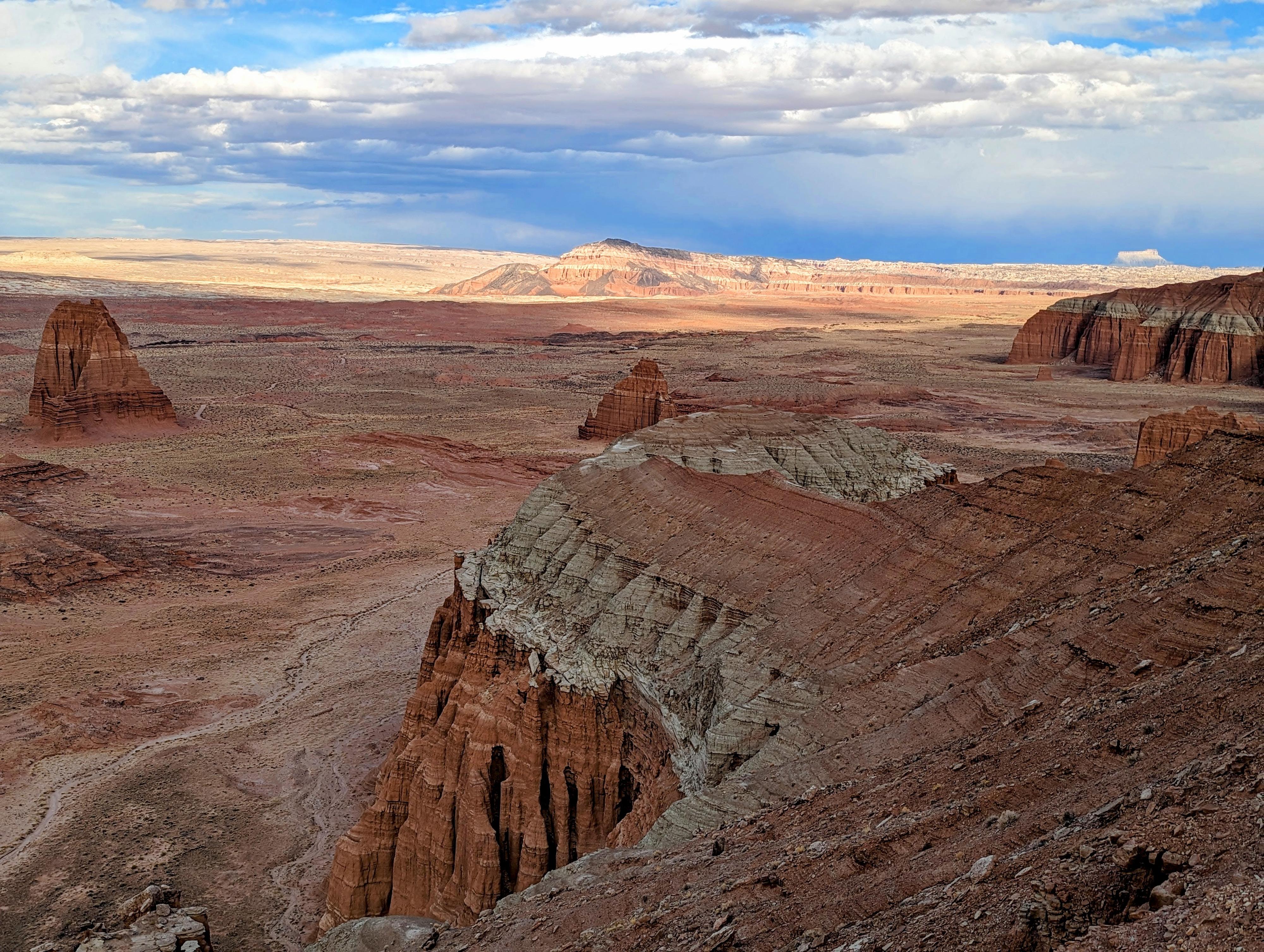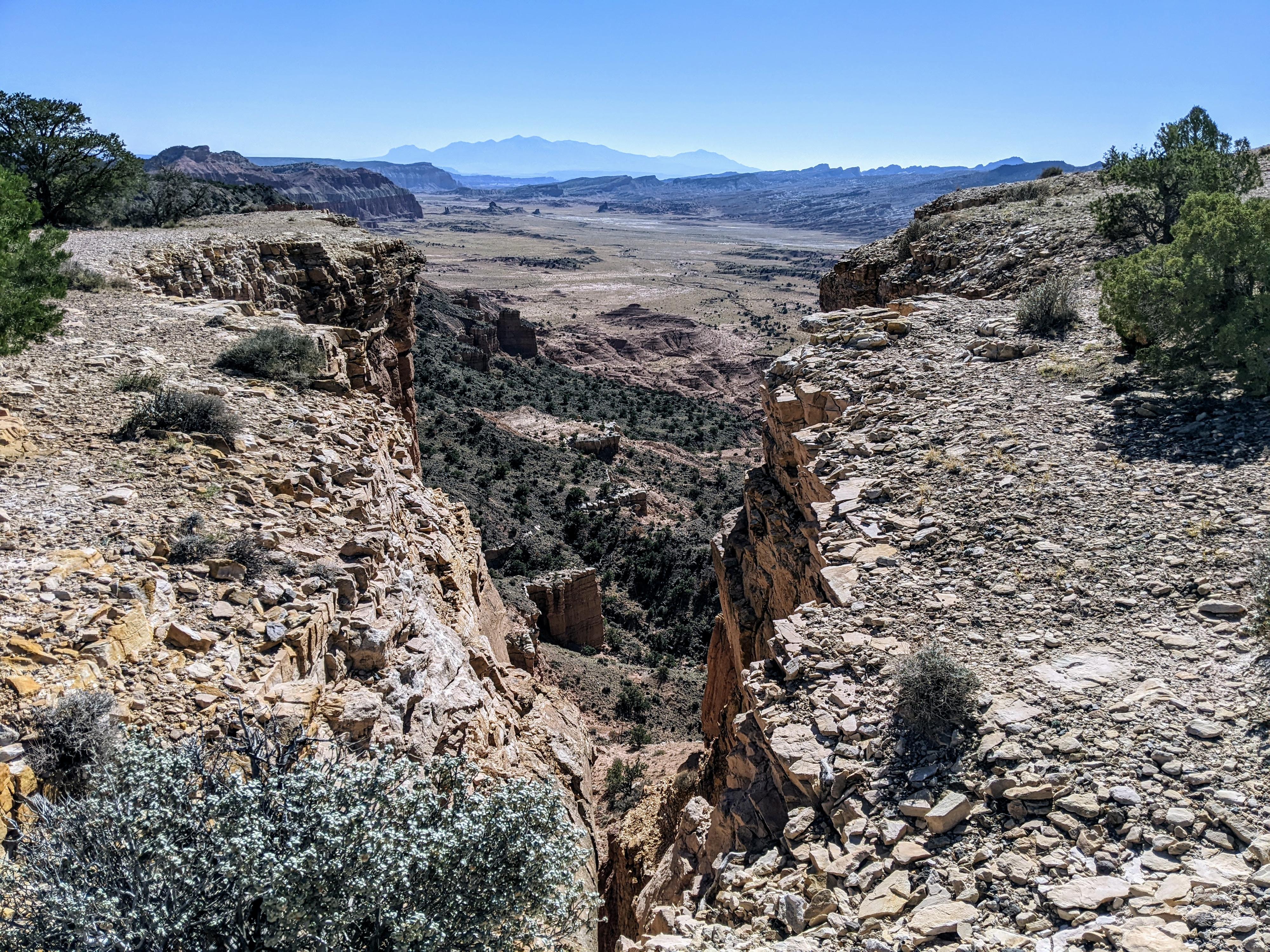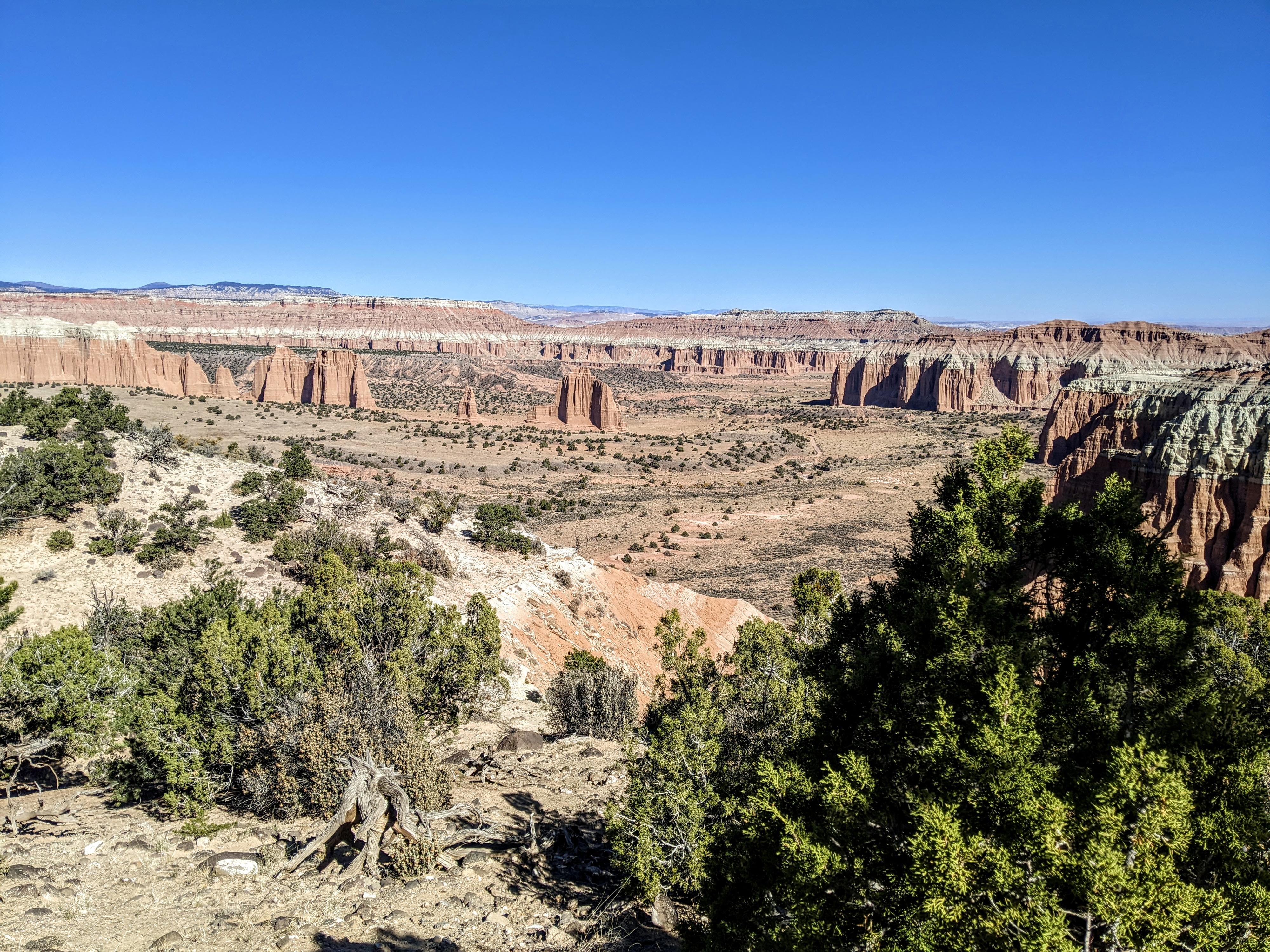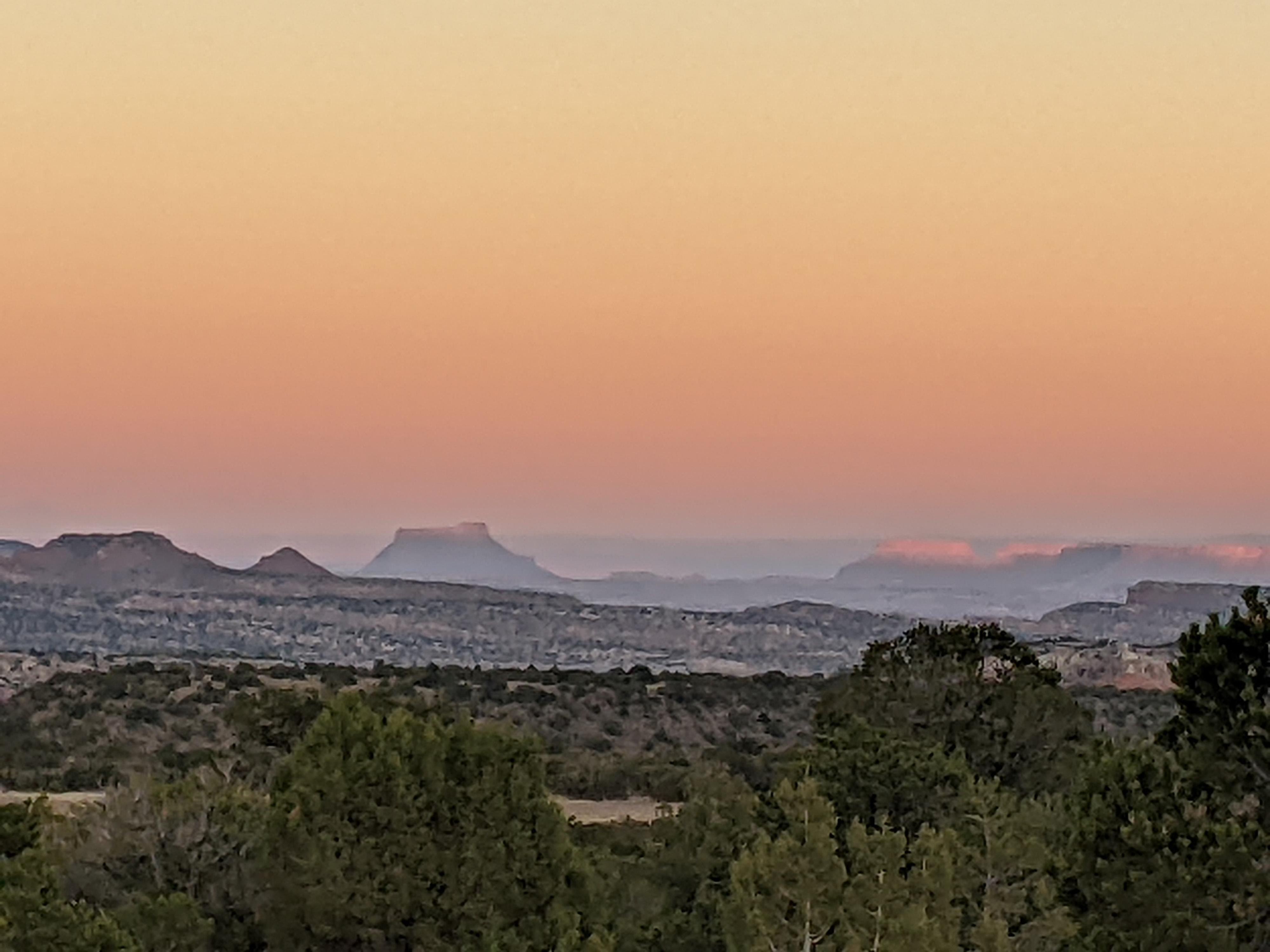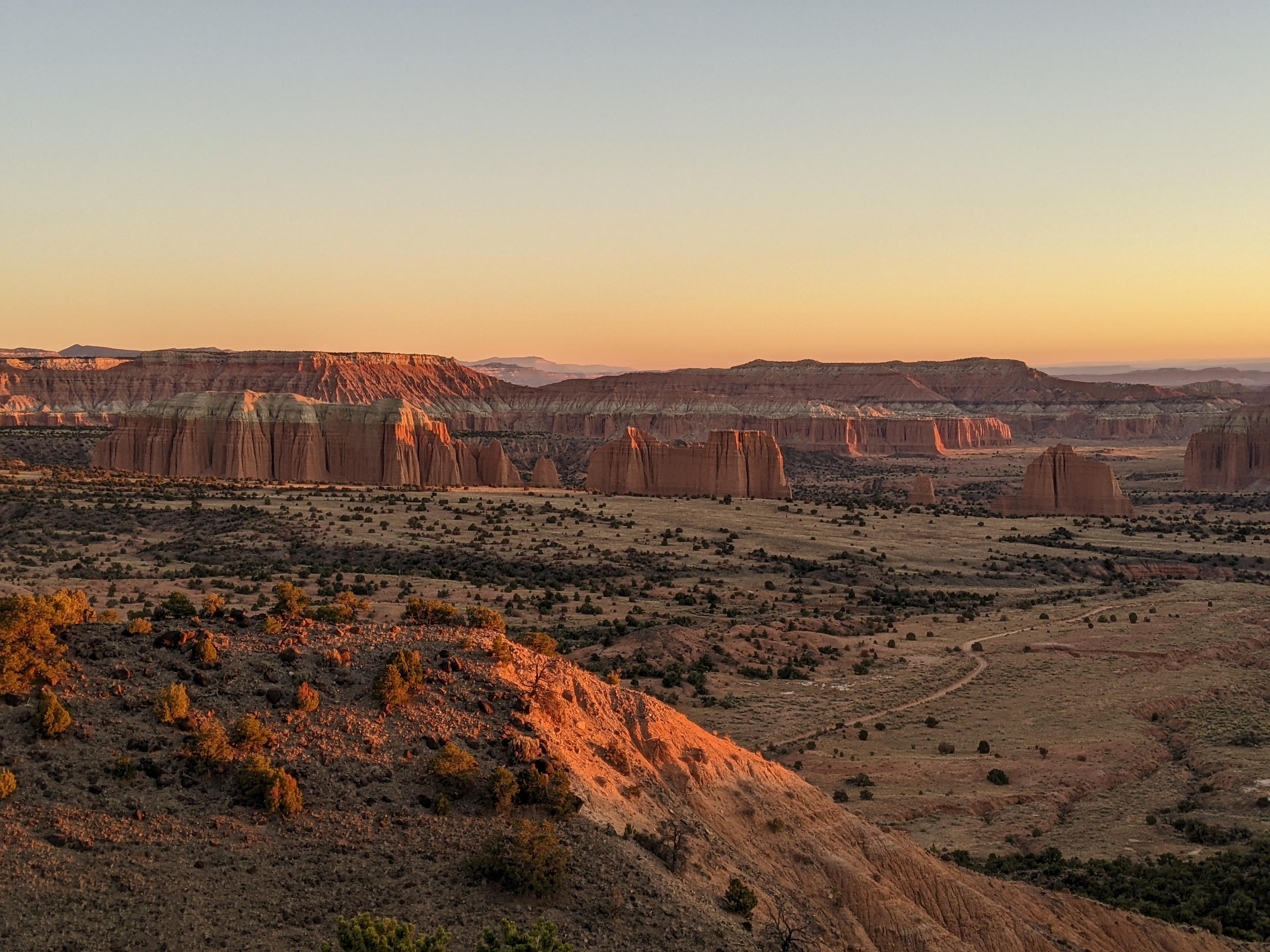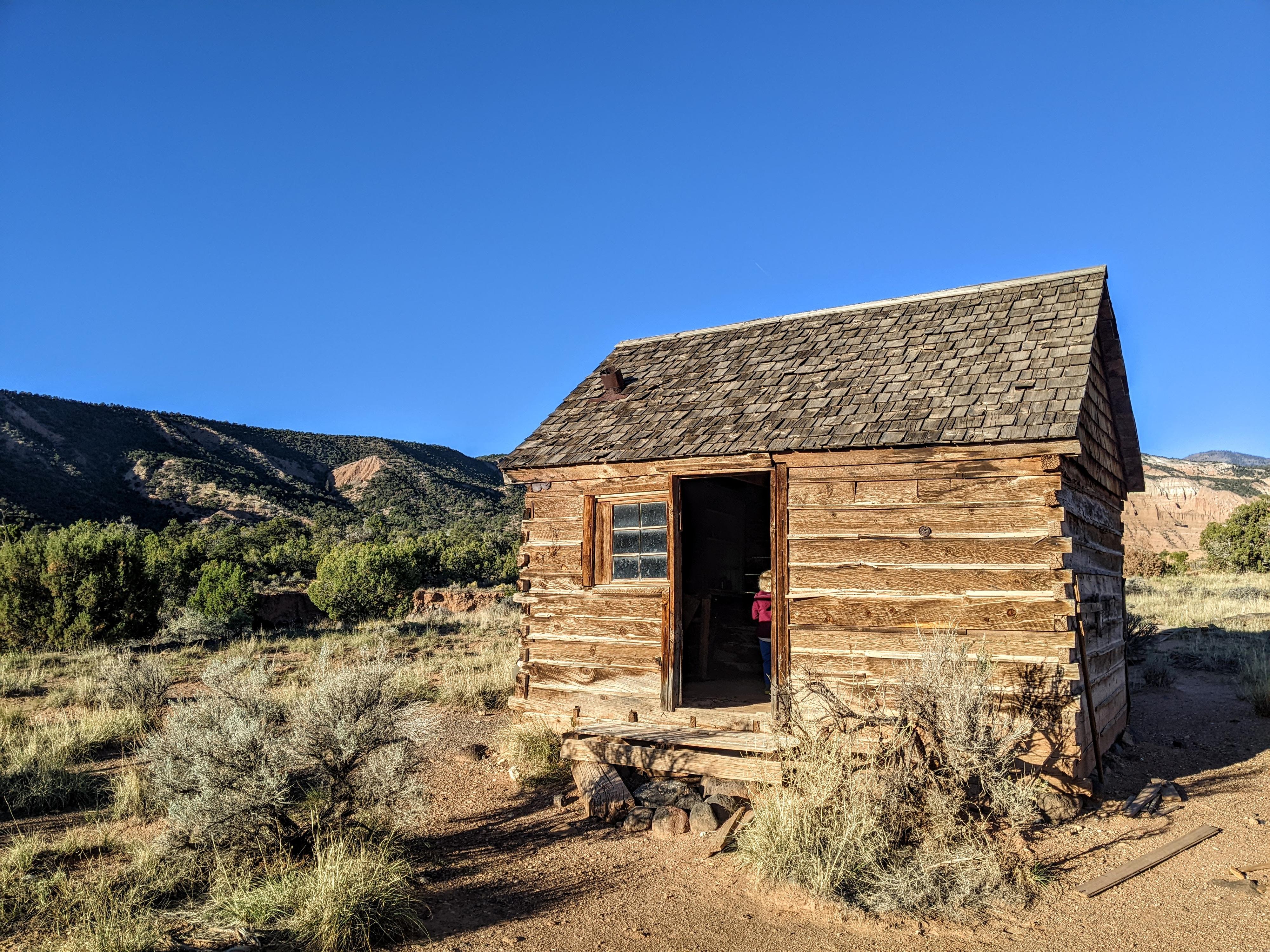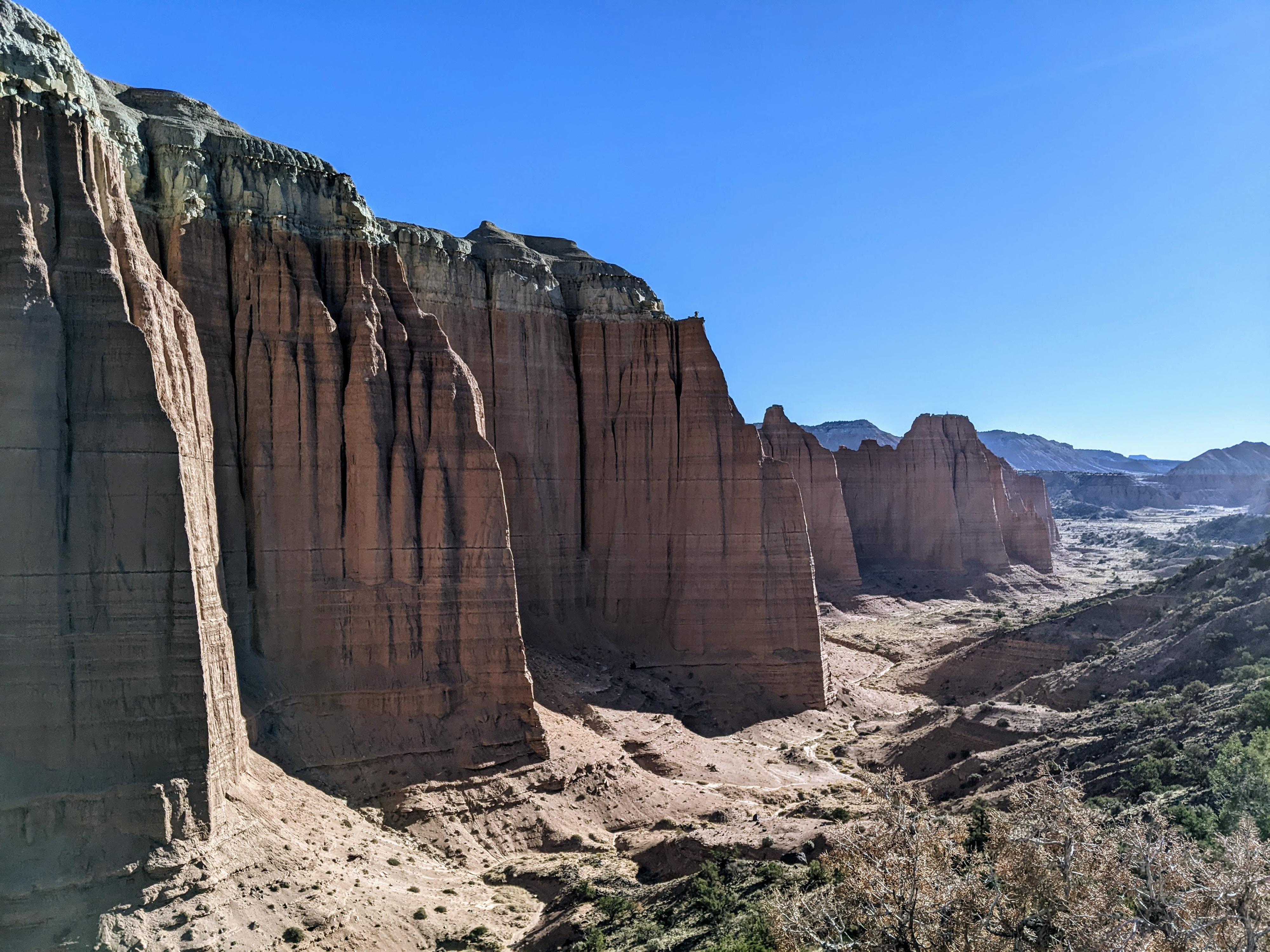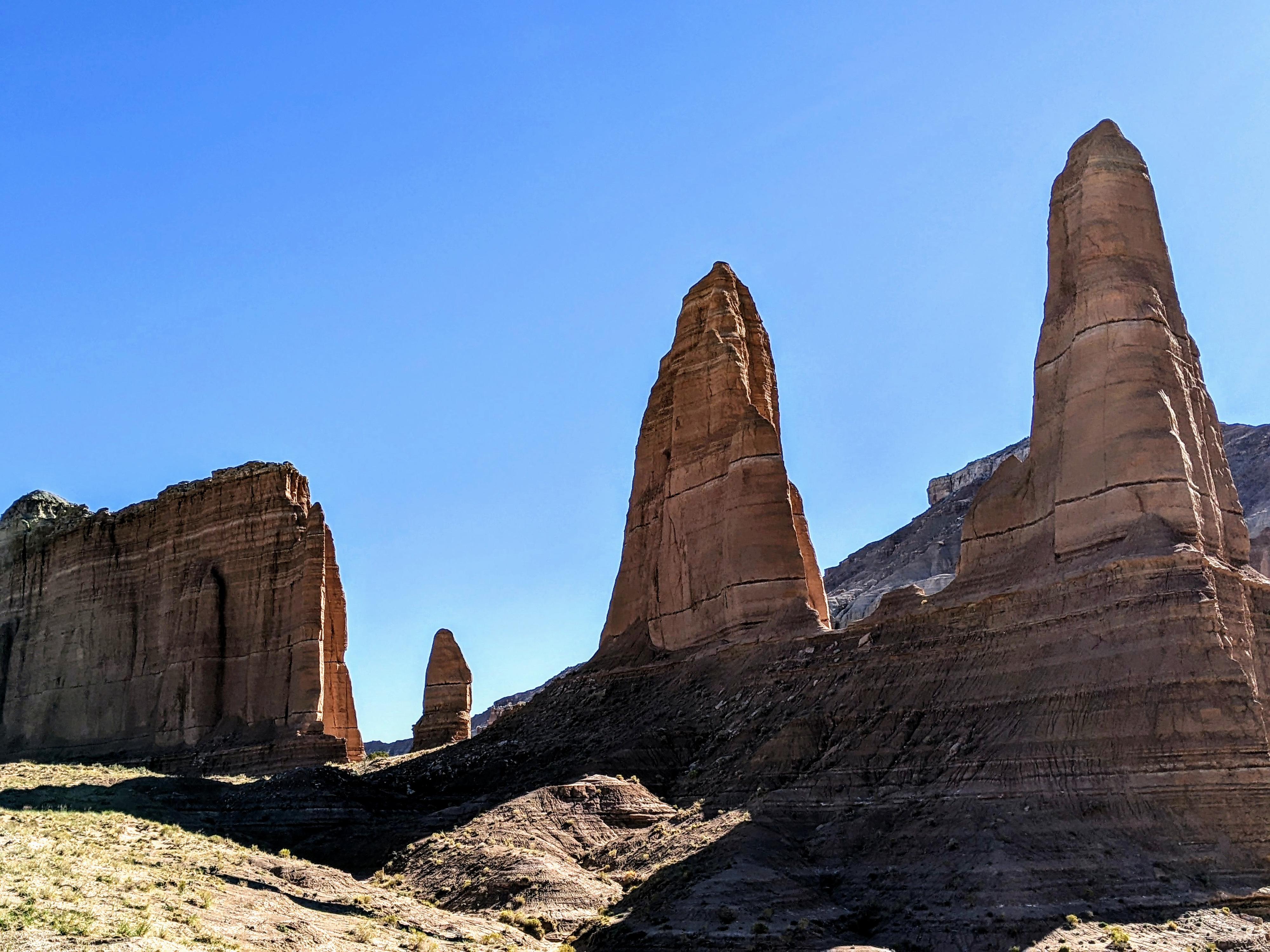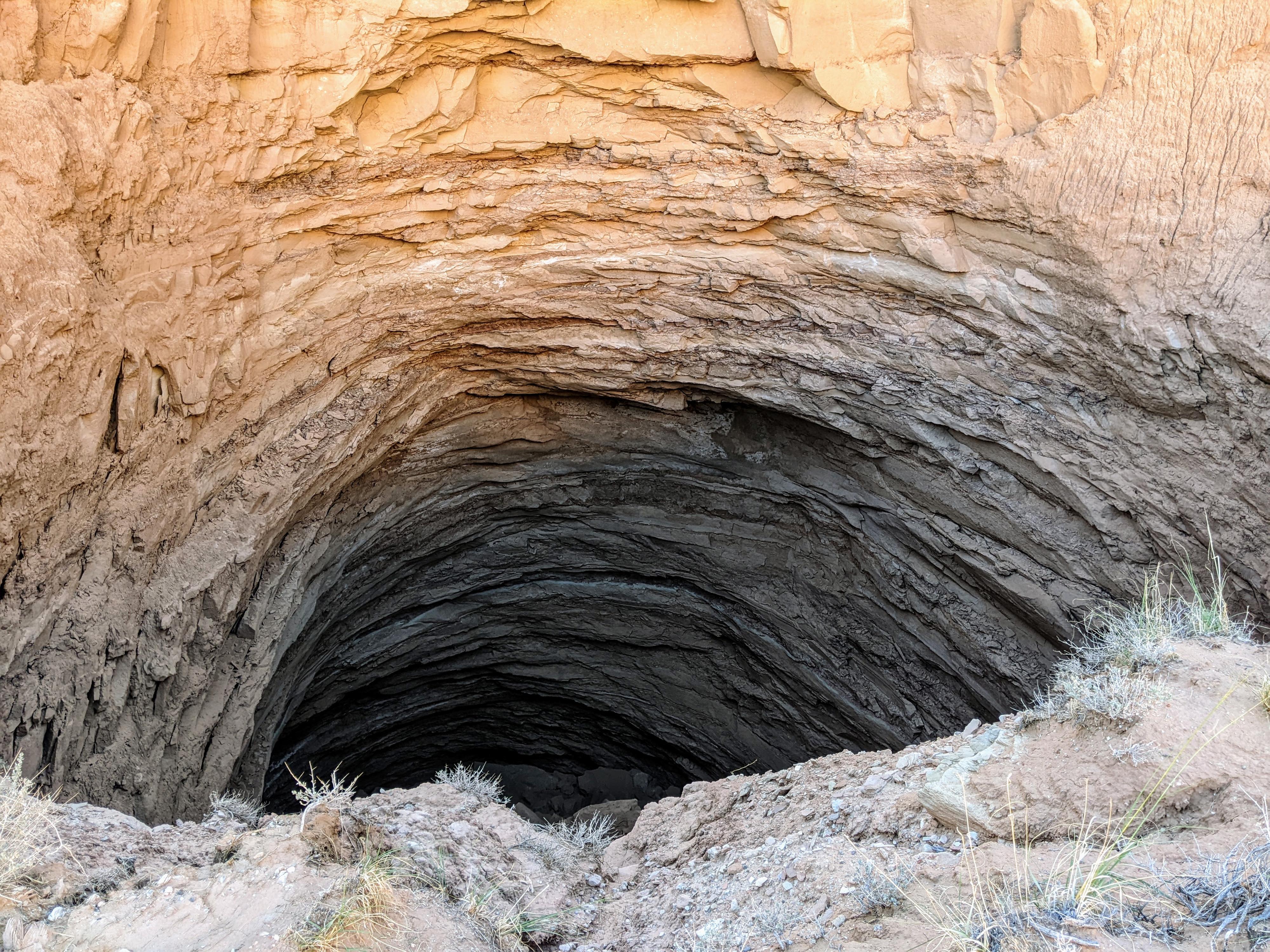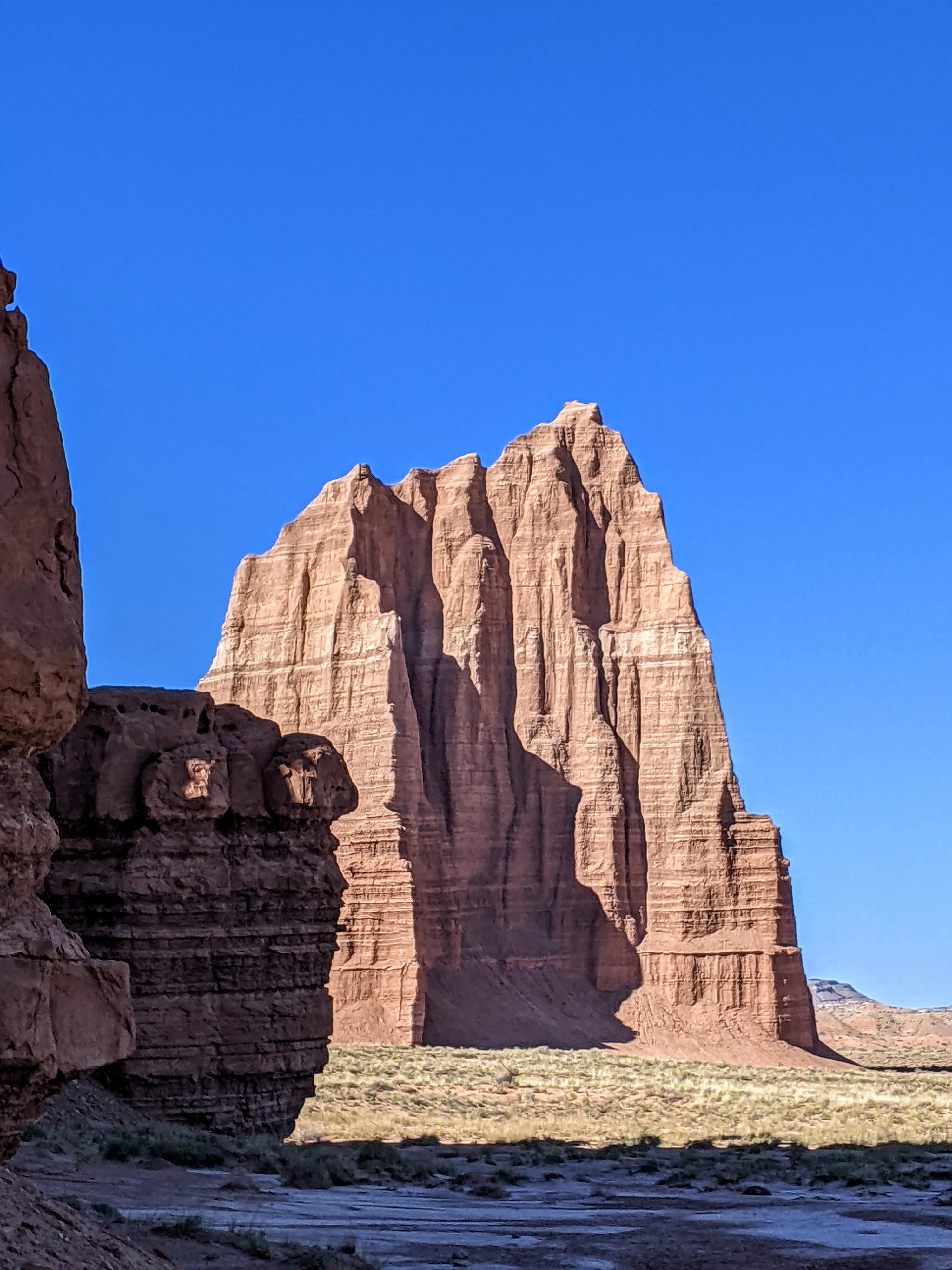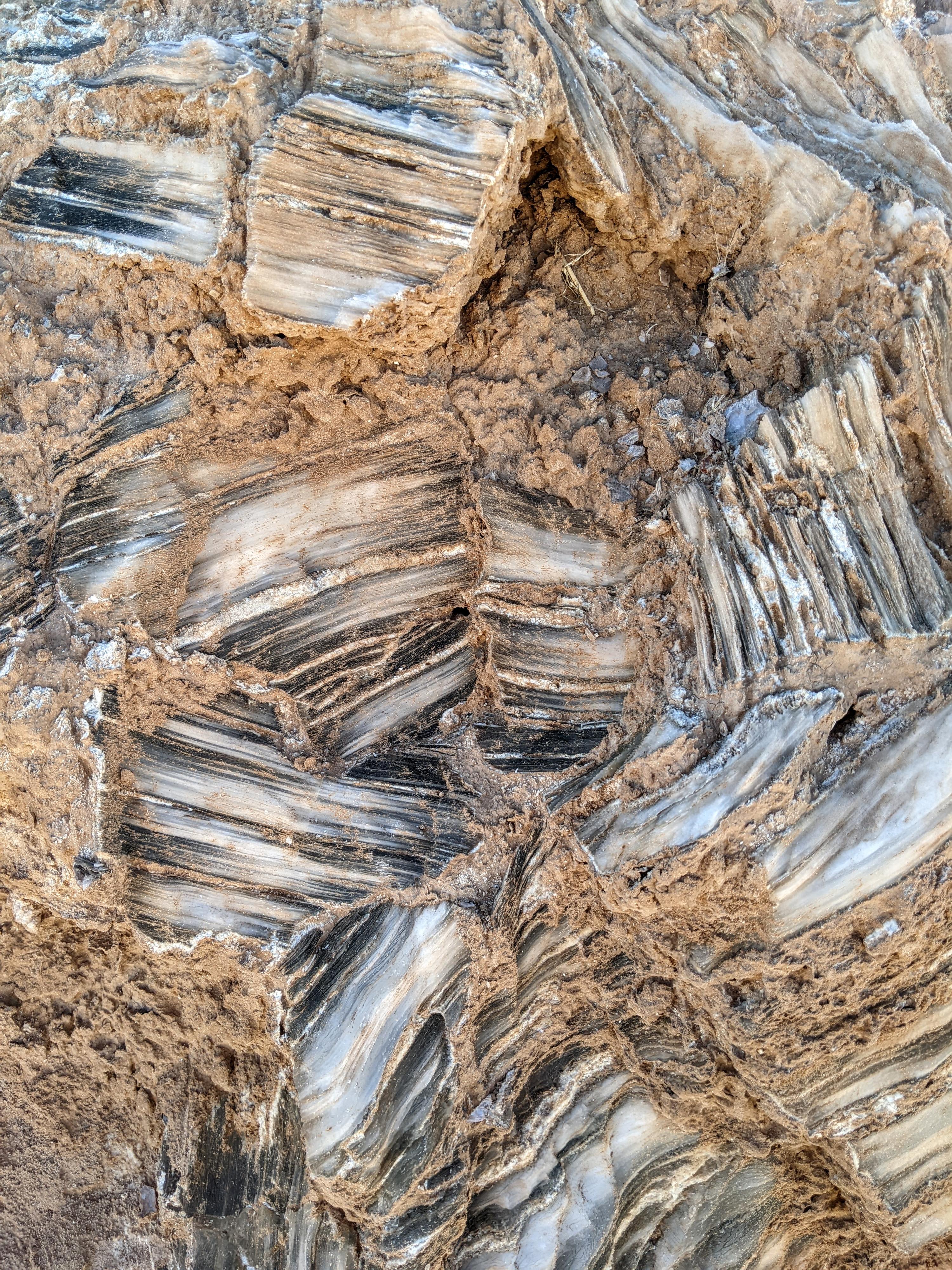
 Cathedral Valley
Cathedral Valley
Capitol Reef National Park
Overview
|
Thu 39 | 17 |
Fri 40 | 24 |
Sat 41 | 16 |
Sun 45 | 20 |
Mon 52 | 24 |
| View Full Weather Details | ||||
|
Thu 39 | 17 |
Fri 40 | 24 |
Sat 41 | 16 |
Sun 45 | 20 |
Mon 52 | 24 |
| View Full Weather Details | ||||
Cathedral Valley, in the northern part of Capitol Reef National Park, is a mesmerizing geological wonder. The area gets its name from the towering rock formations that resemble Gothic cathedrals, with massive monoliths and intricate sedimentary layers creating a surreal landscape. Capitol Reef itself is known for its diverse and stunning red-rock scenery, but Cathedral Valley stands out as an extraordinary highlight within the park. It is an area I have visited many times over the years, and always enjoy. We did an overnight trip when our daughter was 5, and it was a trip she absolutely loved.
VISITING NOTES
SEASON: Spring and Fall are my preferred seasons for visiting. You can visit in the summer, though it can be hot if you intend to do any hiking. Winter can bring impassable roads if there is any snow, ice, or mud. I've done several October/early November trips that have been really lovely, especially with fall colors on Thousand Lake Mountain.
TIME: This CAN be driven in a half day if you are not interested in side hikes and are just hurrying through. My recommendation is at least a full day, and preferably as an overnight camping trip. Sunrise and sunsets are dramatic along the route, and camping helps you see these beautiful times of day.
ROAD CONSIDERATIONS: The common route, described here, is over 50 miles of dirt road. Though generally good, high clearance recommended.
Be sure to bring plenty of fuel, water, and food. Though in a national park, you can go days without seeing anyone else in this area. You need to be prepared to self-rescue if you have a mechanical or other issue.
Sections of the road are made up of bentonite clay. This clay is incredibly slippery when wet, so much so it is used as lubrication when drilling wells. Stay out of the area if precipitation has recently occurred or is in the forecast. Even the most off-road worthy vehicle will not make it far in bentonite if the road is wet.
The route requires crossing the Fremont River. This crossing is usually fairly straightforward, but can be impossible during spring runoff or after recent rains. Call the park's automated phone system at (435) 425-3791 and press 1 for visitor information; 4 for road conditions. This is updated regularly with information and depth of the ford. The USGS also maintains a stream guage near the ford ( https://waterdata.usgs.gov/monitoring-location/09330230/#parameterCode=00060&period=P7D&showMedian=true ). I recommend less than 50 CFS on the guage for easy crossing though you can go a fair bit higher in high clearance vehicles.
You can drive the route in either direction. The common direction, described below, gets the river ford out of the way early in the drive and is generally how most people drive the route.
CAMPING: There is no camping inside of Capitol Reef National Park, except at the Cathedral Valley Campground. This small, primitive campground is first come/first serve and does not have water or trash pickup. It does have fire pits, tables, and pit toilets.
You can camp on the BLM and National Forest land that surrounds the National Park. Keep an eye on the map to be certain you are outside of National Park boundaries if camping on BLM or National Forest land. There are many EXCELLENT primitive camping opportunities on the non-National Park sections of the drive.
Getting There
From the Capitol Reef Visitor Center, head east on UT-24 towards Hanksville for 12 miles through the park to milepost 91. This is outside the national park. Turn left (north) here on a signed dirt road to the river ford. Reset your odometer as you turn off the pavement.
Route
From the Capitol Reef Visitor Center, head east on UT-24 towards Hanksville for 12 miles through the park to milepost 91. This is outside the national park. Turn left (north) here on a signed dirt road to the river ford. Reset your odometer as you turn off the pavement.
The first 0.5 miles to the river ford is lined with private property. Stay on the main BLM road. Just before 0.5 miles is a major junction. Go left, with the river ford a short distance ahead.
Continue past the river ford. You are driving on the Hartnet Road. There are a few small spur roads that mostly lead to primitive camping. Stay on the most travelled road. At 2.9 miles, the road crosses Dry Wash. On the right here, a short distance from the road, is a convoluted dry fall where Dry Wash cuts into the next layer of rock. Worth the very short walk to check out, in my opinion.
At 7.2 miles there is an oasis in the desert! Maybe more of an attempted oasis in the desert. An old drilling truck on the right was used to drill a well for livestock water. I assume the truck broke down, which is why it was abandoned, but the well was successful and still supplies water to a stock tank. A fascinating look into the past!
The scenery changes as you enter the Bentonite Hills at about 8.7 miles. This dramatic and colorful landscape has become very photographed and shows up all over the place. At 8.95 miles there is a small pullout on the right and a social trail that descends steeply to the wash for an up close look at the colors.
At about 9.95 miles there is a small side road on the right that goes to a small livestock reservoir about 2.5 miles off the main road. The side road is rough two-track. There are a couple of good primitive campsites along this side road.
Just after the reservoir side road, at 10.3 miles, is a somewhat major junction. Stay left here on the main road to continue into Cathedral Valley.
The Lower South Desert Overlook side road leaves at mile 14. This side road, about 1.1 miles each way, ends at a stunning overlook into the Lower South Desert. Those looking for a hike can walk an old road from the parking area west to even better views, then descend into the Lower South Desert proper. (less than 1 mile round-trip depending on how far you hike) It is a nice hike, and highly recommended. If you have time, you can continue along a social trail/faded mining track west along to the photogenic Temple Rock. This makes for about a 4.6 mile round-trip hike.
A small pull-out on the right at mile 17.5 marks the Temple of the Sun and Moon Overlook trail. This unofficial trail crosses the wide plain and climbs to the rim looking down on the Temple of the Sun and Temple of the Moon. The hike, out-and-back, is about 1.5 miles and well worth doing. The social trail is generally well travelled and easy to follow.
At 27.1 miles, as the road is almost on top of the high ridge, the Upper South Desert Overlook side road is on the left. This short road leads to a short (less than 1/2 mile round trip) hike to overlook the South Desert.
Next up, at 27.4 miles, is the Upper Cathedral Valley Overlook trail side road on the right. This short side road leads to a short (less than 0.5 mile) trail that overlooks Cathedral Valley proper.
Mile 28.1 is a major junction. To continue to Cathedral Valley, you turn right here. Optional Return: Straight climbs up and over Thousand Lake Mountain and down to highway 72 near Fremont. This is the quickest way back to pavement from this area, and is about 12 miles. IT IS ONLY PASSABLE WHEN DRY, AFTER WINTER SNOWS HAVE MELTED OFF THOUSAND LAKE MOUNTAIN. It is generally a very good road and well signed. If visiting in the summer, and it is hot, it is not far up this road (about a mile) to National Forest Land and some good primitive campsites. Higher up is typically a fair bit cooler.
Cathedral Valley Campground is on the left at mile 28.4. This is an excellent place to camp if a spot is available and has great sunsets.
The road soon begins dropping down to Cathedral Valley. This is often the roughest section of road and fairly steep. If snowy or muddy, be very cautious (or turn around!). Once you reach the valley floor, the road is easy again. At mile 29.9 is the Morrell Line Cabin trail on the left. This short (a little over 0.5 miles roundtrip) trail visits an old line cabin.
From the NPS:
This cabin, built in the 1920s, originally stood at Paul Christensen's summer logging camp on Thousand Lake Mountain, several miles west of here. There it sheltered the Christensen family of eight during the work season. In 1932, cattleman Lesley Morrell bought the cabin for use in his livestock operation. He numbered each log, then dis-mantled the cabin, hauled the pieces down the mountainside in a horse-drawn wagon, and rebuilt the cabin on this site. For the next 40 years, the cabin was used by cowboys when they moved livestock each summer to mountain pasture and each winter to valley rangeland. Returning to the shelter after a day's work, the cowboys would let their horses into the nearby pole corral, wash up, and fix dinner before bunking down.
Western hospitality dictated that the cabin be kept furnished and stocked with food, open to all who needed shelter or a meal. "Les's cabin," as it was locally known, was for years a landmark and meeting place for all who worked in the vicinity. Use of the building ended by 1970 as grazing allotments in the area were restructured. The cabin still serves as a reminder of the area's Old West heritage.
At 30.5 miles there is a small pullout on the right. This is the start of the Cathedrals Trail. This trail gives close, lofty views of the main cathedrals in the valley. It is about 3 miles round trip, and gains a bit of elevation, but was one of our family favorites. Highly recommended at sunrise or sunset for even more magical views.
The road meanders through the valley, with amazing towers and walls all around. A major junction is reached at 33.3 miles. The Baker Ranch road goes north here, traversing through the southern San Rafael Swell and eventually reaching I-70. Stay straight instead, heading east.
Just past the Baker Ranch Jct (at 33.4) is the side road to the Gypsum Sinkhole. Follow this side road (on the right) for about a mile one way to the gigantic Gypsum Sinkhole. It is within sight of the parking area. Obviously, stay back from the edges!
At 37.5 miles, a small side road leaves on the left. Ignore it, and stay on the main dirt road.
My favorite stop of the drive! At mile 42.8 is the side road to Temple of the Sun, Temple of the Moon, and Glass Mountain. Follow the side road about 2 miles (one way) to visit these features. Glass Mountain is north of the temples, with a signed side road visiting it. This is my favorite stop to get out and walk around one or both of the temples. This is also the last stop on the drive.
The road soon leaves the National Park and crosses the badlands. There are quite a few good primitive campsites along this section. At mile 55.7 a side road joins from the left. Stay straight, heading south. North Cainville Mesa is the large mesa just to the east. An impressive mesa that is a landmark for the area.
Pavement! After an adventurous 58.1 miles, UT-24 is reached. Turn right here to head west back to Capitol Reef, or left to head to the small town of Hanksville.
| Mile Marker 91 on UT-24 |
12S 492148E 4236282N 38°16'28"N 111°05'23"W |
| 0.5 miles - River Ford |
12S 492959E 4236326N 38°16'30"N 111°04'50"W |
| 2.9 miles |
12S 492919E 4238405N 38°17'37"N 111°04'51"W |
| 7.2 miles |
12S 489539E 4243411N 38°20'20"N 111°07'11"W |
| 8.7 miles |
12S 488693E 4245563N 38°21'29"N 111°07'46"W |
| 10.3 miles |
12S 488163E 4247567N 38°22'34"N 111°08'08"W |
| 14 miles |
12S 483790E 4250457N 38°24'08"N 111°11'08"W |
| Lower South Desert Trailhead |
12S 482196E 4250686N 38°24'15"N 111°12'14"W |
| Lower South Desert Overlook |
12S 481846E 4250531N 38°24'10"N 111°12'28"W |
| Lower South Desert Overlook 2 |
12S 481794E 4250547N 38°24'11"N 111°12'31"W |
| Temple Rock |
12S 478805E 4251114N 38°24'29"N 111°14'34"W |
| Temple Rock Viewpoint |
12S 479205E 4251054N 38°24'27"N 111°14'17"W |
| 17.5 miles |
12S 482046E 4253581N 38°25'49"N 111°12'21"W |
| Temple of the Sun and Moon Overlook |
12S 482042E 4254877N 38°26'31"N 111°12'21"W |
| Upper South Desert Overlook Trailhead |
12S 469144E 4258357N 38°28'23"N 111°21'13"W |
| Upper South Desert Overlook |
12S 469215E 4258019N 38°28'12"N 111°21'10"W |
| Upper Cathedral Valley Overlook Trailhead |
12S 468787E 4258766N 38°28'36"N 111°21'28"W |
| Upper Cathedral Valley Overlook |
12S 468790E 4258914N 38°28'41"N 111°21'28"W |
| 28.1 miles |
12S 468260E 4257965N 38°28'10"N 111°21'50"W |
| Cathedral Valley Campground |
12S 467973E 4258524N 38°28'28"N 111°22'02"W |
| 29.9 miles |
12S 468511E 4259562N 38°29'02"N 111°21'40"W |
| Morrell Line Cabin |
12S 468159E 4259555N 38°29'02"N 111°21'54"W |
| 30.5 miles |
12S 469200E 4260019N 38°29'17"N 111°21'11"W |
| Cathedrals Trail End |
12S 467719E 4260434N 38°29'30"N 111°22'13"W |
| 33.3 miles |
12S 472323E 4262003N 38°30'21"N 111°19'03"W |
| Gypsum Sinkhole |
12S 472214E 4261187N 38°29'55"N 111°19'07"W |
| Gypsum Sinkhole Trailhead |
12S 472223E 4261187N 38°29'55"N 111°19'07"W |
| 37.5 miles |
12S 478308E 4261260N 38°29'58"N 111°14'56"W |
| 42.8 miles |
12S 484673E 4256809N 38°27'34"N 111°10'32"W |
| Temple of the Sun |
12S 483201E 4255868N 38°27'03"N 111°11'33"W |
| Temple of the Moon |
12S 483294E 4255346N 38°26'46"N 111°11'29"W |
| Glass Mountain |
12S 483263E 4256286N 38°27'17"N 111°11'31"W |
| 55.7 miles |
12S 497617E 4246658N 38°22'05"N 111°01'38"W |
| 58.1 miles - UT-24 at mile marker 97.95 |
12S 497885E 4242885N 38°20'03"N 111°01'27"W |

